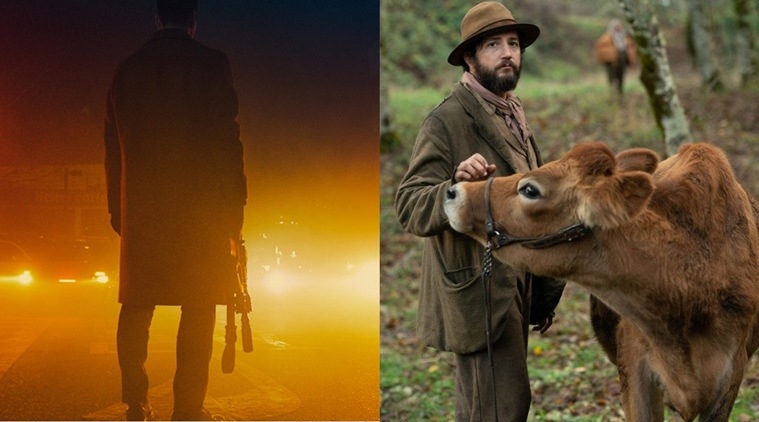 Kelly Reichardt’s First Cow is a lovely, delicate rumination on many things: about being an outsider, longing to belong, male friendship.
Kelly Reichardt’s First Cow is a lovely, delicate rumination on many things: about being an outsider, longing to belong, male friendship.
Blame it on Parasite. The lines for S Korean actioner Time To Hunt stretch all the way down two floors out of the Cinemaxx theatre, one of the main screening venues at the Berlinale. The press line is the buzziest it has been: finally it feels like a hot film at one of the biggest film festivals.
The film is a pacy thriller, focusing on three young men trying to hack a life in the near future, which is, of course, dystopian. The frames are kinetic and stylish as it tracks the three friends, one who has just been released from prison, and has thought of a last job before they take off to a warm tropical island. Part heist, part chase, the film has shades of the Terminator movies; and the on-the-run bits, in which the trio is chased by a bigger gang, puts you in the mind of Mad Max.
Those are the influences director Yoon Sung-hyun admits to while making Time To Hunt, which comes nine years after his debut coming-of-age feature, Bleak Night. At the journalists’ roundtable post-screening, the ‘dystopia’ question comes up first. Does he think the future is all dystopic?
Yoon, speaking through his interpreter, comes back with a ‘no’. His film is not a prediction of the future, he says. It is a metaphoric expression of contemporary S Korean society. “I wanted to capture the emotions of the young people around me, the ones who are struggling to make sense of the economic downturn.” The elements of the movies he has loved, which also includes Spielberg’s 1971 film Duel, found their way in his own, which evolved into a genre film.
I ask him a double-barrelled question. Is violence the answer to the world’s troubles? Also, post-Parasite, with its staggering sweep at the Oscars, does he think the S Korean film industry will change in any way? The S Korean brand of cinematic violence, the visceral sort we have seen in such films as Old Boy, which is very different from the contemplative kind in Memories of Murder, have had a great deal of impact on action movies around the world, including Bollywood. (Old Boy was officially remade by Sanjay Gupta, as Zinda, starring Sanjay Dutt and John Abraham).
Yoon says he uses violence only as a tool to tell his stories. It is neither an answer or a solution. The physical violence is meant to represent and visualize the psychological violence within the society. But the stylishness of the violence is also numbing and alienating in a way: it keeps you from feeling. Is he aware of how dangerously seductive it can be? That’s why for me emotions are so important, he says. Family and friendship are key.
Which is what you see on screen. It is a bromance. The young men are close, with the deep ties that bind them, not just their criminal activities. And they are not scared to show their feelings, in a new kind of masculinity.
Yoon says he thinks that there will be a lot of change in Korean filmmaking after Parasite. Before, it was kind of passive. Bon Joon Ho is a master, and he has paved the way for us, the younger generation will now have the courage to do new story-telling, and not just repeat old story and styles.
Is there any pressure to better Bong? He smiles, and demurs. Bong is a legend. I have just begun.
Good answer.
And immediately after, I am in a film which I predict will come away with a win. Kelly Reichardt’s First Cow is a lovely, delicate rumination on many things: about being an outsider, longing to belong, male friendship. The film is a Western with a difference; no gun-toting cowboys brandishing lariats, but fur-trappers who are also looking for their patch of land in America in the beginning of the 19th century.
Express at Berlinale 2020 | Day 2 | Day 1
An unlikely relationship is struck between a Chinese immigrant who shows up in a rough-and-ready camp in Oregon, and a man who loves to bake. And as they navigate the terrain, untouched, beautiful, they come across dangers they haven’t anticipated. How they deal with these, and make their way past them, forms the bulk of this film. It takes a little while to get into it, but the submission to its quietly observed joys brings the kind of happiness a really good film does.